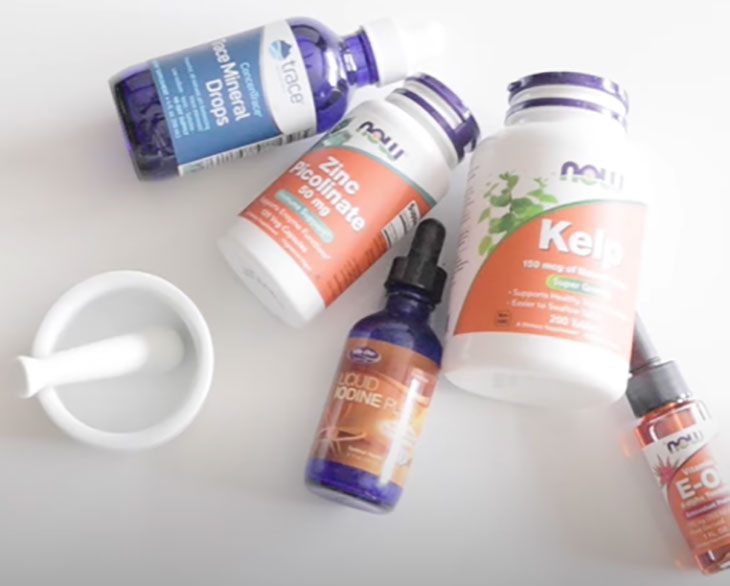As responsible pet parents, we all want the best for our four-legged companions.
One way to ensure their long-term health is by feeding them a raw diet, which can offer numerous benefits such as improved coat quality, better digestion, and increased energy levels.
However, to meet your dog’s nutritional needs, it’s essential to understand the importance of raw dog food supplements, as they can offer many optimistic benefits for your puppies!
Do Dogs Eating Raw Food Require Supplements?

Yes, your dogs need supplements along with their raw diet. Feeding puppies a raw food diet can be beneficial but comes with challenges.
Raw diets may lack stability, potentially leading to nutrient deficiencies if not prepared carefully.
While dogs can get most nutrients from a varied natural diet, achieving a perfectly balanced diet is difficult.
To address this, it’s recommended to include supplements for dogs on raw diet in their daily meals.
Dog raw diet supplements ensure puppies receive nutrients like vitamins and minerals.
For example, not all canines readily eat vegetables, which provide natural sources of nutrients.
Therefore, supplements are particularly important for dogs with specific needs, such as puppies, seniors, or those with health issues.
What Are The Essential Raw Dog Food Supplements?

The best dog supplements for a raw diet include calcium, fish oil (or Omega-3 fatty acids), vitamin D, multivitamins, probiotics, fiber supplements, joint supplements, digestive enzymes, iron, and B vitamins.
However, you should only keep their intake in a moderate amount.
Calcium
A dog’s general health is fundamentally impacted by calcium, which is especially important for keeping healthy bones and teeth.
Additionally, it assists in blood coagulation, neuron transmission, and appropriate muscular contraction.
Since homemade diets, including freeze-dried raw food, occasionally don’t contain this mineral, it’s crucial for dogs to get enough calcium.
Calcium and phosphorus supplements must be supplied in a proper ratio to avoid imbalances, which can result in skeletal issues.
Therefore, precision in dose and balance are essential since too much or too little calcium might be troublesome.
Fish Oil or Omega-3 Fatty Acids
Omega-3 fatty acids, primarily detected in fish oil, are popular supplements for raw dog food.
They offer various benefits, including reducing inflammation, supporting a healthy coat and skin, and aiding cardiovascular health.
These fatty acids, specifically EPA (eicosapentaenoic acid) and DHA (docosahexaenoic acid) are not naturally produced by a dog’s body in sufficient quantities and must be obtained from their daily meals.
Hence, feeding raw fish or providing fish oil supplements can help ensure dogs receive an adequate intake of omega-3s.
Furthermore, omega-3 is important for dogs with skin issues, allergies, or joint problems, as they can alleviate the symptoms and enhance their long-term health.
Vitamin D
While dogs can produce some vitamin D through exposure to sunlight, they may still require dietary sources, especially if they have limited sun exposure.
In a raw food diet, vitamin D can come from sources like fatty fish, eggs, and liver. However, ensuring a consistent and adequate food supply alone can be challenging.
Vitamin D deficiency can give rise to severe problems like weakened bones and a compromised immune system.
So supplementing your pooch with vitamin D may be needed.
Multivitamins or Mineral Supplements
Multivitamins and mineral supplements offer a combination of vital vitamins (like A, C and E) and essential minerals (such as zinc and selenium) that animals need for optimum health.
These excellent sources support various bodily functions, including the immune system, energy production, and maintaining healthy skin and coat.
Probiotics
Just like humans, dogs have a complex community of microorganisms in their intestines that is important in digestion and overall well-being.
Probiotics contain strains of these friendly bacteria that can help maintain the balance of gut flora.
They aid digestion and nutrient absorption and can even boost the immune system.
In addition, probiotics can be particularly useful for puppies with digestive issues, food sensitivities, or those taking antibiotics that may disrupt their gut flora.
These raw food diet supplements for dogs come in various forms, like capsules, powders, or even as ingredients in specialized dog food.
Fiber Supplements
Fiber is typically available in two main forms: soluble and insoluble.
- Soluble fiber in some vegetables and oats can manage blood sugar levels and lower cholesterol.
- Insoluble fiber, found in foods like bran and certain vegetables, adds bulk to the stool and aids in preventing constipation.
Fiber supplements can benefit canines with gastrointestinal issues, weight management needs, or anal gland problems.
Joint Supplements
A dog’s joint health is frequently supported and maintained using joint supplements, especially as they age.
The powerful ingredients, notably glucosamine, chondroitin, and methylsulfonylmethane, are commonly found in these supplements.
These substances support joint lubrication, lower inflammation, and maintain joint cartilage.
Joint supplements are especially beneficial for older dogs and large breeds prone to major health issues like osteoarthritis.
Also, they can speed up the recovery in puppies after accidents or surgeries. Chewable tablets, capsules, and treats are just a few of the different forms of these supplements.
Digestive Enzymes
Digestive enzymes are organic compounds that aid in converting food into nutrients that dogs can absorb.
Canines naturally produce these enzymes in their pancreas and small intestine.
However, some may have digestive issues or conditions that hinder enzyme production, leading to difficulties processing certain foods.
Digestive enzyme supplements can smoothen the digestion of proteins, fats, and carbohydrates, making it easier for dogs to absorb essential nutrients from their food.
In addition, they are an especially as-needed basis for dogs with conditions like exocrine pancreatic insufficiency (EPI) or food sensitivity.
Iron
A dog’s health depends on iron, a critical mineral that assists the passage of oxygen throughout the body.
It is a crucial component of hemoglobin, a red blood cell protein that brings oxygen to tissues and cells.
Although dogs often get iron from their diet, there are several circumstances where raw food vitamins supplements may be required.
These circumstances include illnesses, blood loss from accidents or surgeries, or dietary inadequacies.
However, as too much iron can be hazardous, iron supplements should only be given under a veterinarian’s supervision.
B Vitamins
Water-soluble B vitamins play diverse and essential roles in a dog’s metabolism, energy production, and overall health.
This group includes B1 (thiamine), Riboflavin, or B2 vitamin, B3 (niacin), pantothenic acid – B5, B6 (pyridoxine), biotin, or known as B7, B9 (folic acid), and B12 (cobalamin).
Each B vitamin serves specific functions, for example, converting food into energy, maintaining a healthy coat and skin, and supporting the nervous system.
What To Consider When Buying Supplements For Pets?

When purchasing supplements for your pets, there are several important factors to consider to ensure their health and safety:
Consult Your Vet
Before introducing any supplements into your pet’s diet, I will always consult my veterinarian.
They can assess your pet’s specific health needs and advise you on which supplements, if any, are necessary.
Your vet can also recommend the appropriate dosage and guide potential interactions with your pet’s existing medications or health conditions.
Reputable Brands
- Choose supplements from well-established brands that prioritize quality and safety.
- Research and select brands with a history of producing high-quality pet supplements and a commitment to animal health.
- Look for reputable products that have undergone rigorous testing and quality control measures.
- Reading customer reviews and seeking recommendations from your veterinary nutritionist or trusted pet owners can help you identify reliable brands that align with your puppy’s needs.
Ingredients
Usually, I will closely examine what’s in the supplement to ensure it contains the nutrients or substances your pet needs.
Opt for products with natural, high-quality ingredients, and steer clear of supplements loaded with unnecessary fillers, additives, or artificial preservatives.
Dosage
Always adhere to the recommended dosage instructions on the product label or as your vet advises.
Dosage requirements can differ based on your pet’s size, age, and health condition, so it’s vital to provide the right amount to prevent overdoing it, which could be harmful.
Form
Consider the form of the supplement that your pet will find most convenient to take.
Supplements have many forms, like tablets, capsules, chewable treats, powders, and liquids.
Some pets might go for chewable treats, while others may prefer supplements mixed with their food.
Choose a form your dog is comfortable with and can easily consume.
Expiration Date
Always verifying the expiration date on the supplement’s packaging is crucial.
Using expired supplements can result in reduced effectiveness or, in some cases, potential harm to your pet’s health.
Allergies
When reviewing the supplement’s ingredients, consider your dog’s allergies or sensitivities.
Examine the ingredient list for any substances your pet may be allergic to or intolerant of, as this can prevent adverse reactions.
Safety Certifications
Select goods with endorsements from reputable agencies like the National Animal Supplement Council (NASC).
These accreditations provide a guarantee of product safety and quality, enabling you to provide your canine with a reliable supplement.
Conclusion
Ensuring your dog’s optimal health and vitality on a raw food source involves more than just serving up meat and bone broths.
The essential raw dog food supplements mentioned in this guide play a significant role in meeting their nutritional requirements.
Ultimately, pet parents can provide these nutrients to their furry friends for a long, happy, and healthy life filled with tail wags and playtime!
